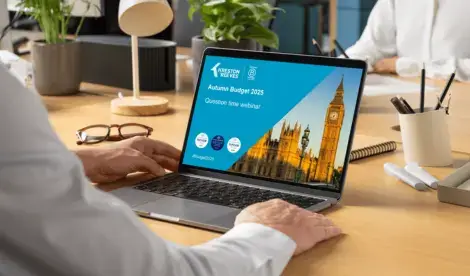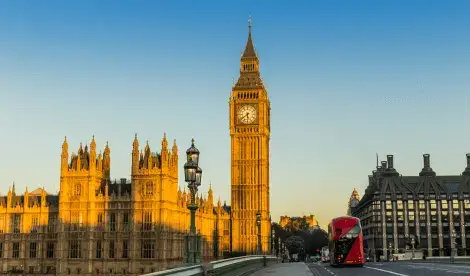Dipesh Galaiya BSc (Hons) FCA
- Private Client Tax Senior Manager
- +44 (0)330 124 1399
- Email Dipesh
Suggested:Result oneResult 2Result 3
Sorry, there are no results for this search.
Sorry, there are no results for this search.
View all peoplePublished by Dipesh Galaiya on 1 August 2024
Share this article
One of the first steps for the new Labour government as set out in its manifesto is to “recruit 6,500 new teachers in key subjects to set children up for life, work and the future, paid for by ending tax breaks for private schools.”
It is a policy that was first announced well before the general election campaign although much of the detail has yet to be announced.
At present, independent schools are exempt from charging VAT on school fees, and this is the ‘tax break’ that the Labour Party wants to end.
To levy VAT on private school fees, the government would need an Act of Parliament, which would become law when it receives royal assent. But that is not necessarily when the law takes effect.
The Labour Government are currently running a consultation on the proposed tax changes which will end on 15 September 2024. Their proposal states that they will end this tax break with effect from 1 January 2025 and parents will have to pay VAT on the school fees at the standard rate of 20%. The Government will confirm these tax changes at the Budget which has been scheduled on Wednesday 30 October 2024.
There is plenty of commentary on the merits and demerits of these proposals, and we will only see the real results in the fullness of time. However, many families are looking for tax-efficient ways to pay school fees especially as they are faced with increased cost of living, rising mortgage rates and to add to that – VAT on school fees. Below is a discussion of some strategies that you could consider:
A number of independent schools had offered this option, but it came with various caveats and uncertainties. As expected, the Government have announced anti-forestalling legislation, and in their technical note the Government have clearly stated that: ‘Any fees paid from 29 July 2024 pertaining to the term starting in January 2025 onwards will be subjected to VAT.’
Many families turn to grandparents to help with the funding of school fees – education is a noble legacy that elderly grandparents would like to leave behind for their grandchildren.
Where grandparents make gifts in excess of £3,000 from of their capital, the first £3,000 per donor will be exempt from Inheritance Tax (IHT) and the balance will be treated as a Potentially Exempt Transfer which would then fall away upon survival for 7 years.
However, grandparents can consider making ‘gifts out of surplus income’ which would then be exempt from IHT. To qualify for this exemption, the gift must be made from ‘surplus’ income (post tax) whereby the donor is still left with sufficient income to maintain their usual standard of living after making the gift(s). The gift must form part of the normal expenditure for the donor. Making this habitual and establishing a regular pattern would provide credence to qualify for the IHT exemption.
Where grandparents are receiving income from some assets (e.g. property etc) and then making gifts from their after-taxed income, they could consider other more tax-efficient strategies of ‘channelling’ that income to fund school fees, as described below.
Grandparents who have accumulated wealth over the years and who are faced with an Inheritance Tax (IHT) problem can consider setting up a Discretionary Trust and they can settle assets up to their Nil Rate Band(s) under that Trust.
An asset such as a rental property which is sitting on a significant capital gain is ideal for this type of planning where the capital gain can be deferred and, provided there is no mortgage on the property, such a transfer would not incur a Stamp Duty Land Tax charge. Upon survival for 7 years, these assets would then fall outside of the grandparents’ estate for IHT purposes.
The rental income from the property would then accrue to the Trust which would be subject to income tax at 45%. However, the Trust can then distribute this rental income to the grandchildren who can seek a credit for any tax suffered by the Trust resulting in the grandchildren possibly receiving tax refunds from HMRC. These distributions can be used to pay school fees with a minimal income tax liability. The Trustees of the Trust (usually the grandparents) can enter into a contract with the schools to enable the Trust to make fee payments directly to the school.
Please see the articles om Keeping property within your family and Use of trusts for school fees for further details on this planning.
Another alternative to mitigate IHT and to enable an income to be paid to the grandchildren is for the grandparents to consider setting up a Family Investment Company with alphabet shares to enhance the flexibility to extract profits. Certain shares in the FIC can be held for the grandchildren through a Trust and dividends can be paid to them via the Trust in a tax-efficient manner.
This planning allows the assets under the FIC to grow at relatively lower tax rates as the corporation tax rate of 25% is lower than the highest rates of income tax 40% / 45%). If set-up correctly from the outset, the growth of the FIC can sit with the Trust (i.e. outside of the estate of the grandparents), whilst giving the grandparents control over the FIC by virtue of them being appointed as Directors of the FIC and the Trustees of the Trust.
Please see further details on this planning here.
Therefore, through effective planning, grandparents can set-up a wonderful legacy to help fund their grandchildren’s education in a tax-efficient manner. Remember, everyone’s situation is different and no one size fits all – these strategies are complex and you should seek tax advice before embarking on any of these strategies.
We will be delighted to assist you, and if you would like to discuss these strategies then please get in touch.
Share this article
This site is protected by reCAPTCHA and the Google Privacy Policy and Terms of Service apply.
Related people
This site is protected by reCAPTCHA and the Google Privacy Policy and Terms of Service apply.
Our complimentary newsletters and event invitations are designed to provide you with regular updates, insight and guidance.
You can unsubscribe from our email communications at any time by emailing [email protected] or by clicking the 'unsubscribe' link found on all our email newsletters and event invitations.
This site is protected by reCAPTCHA and the Google Privacy Policy and Terms of Service apply.





